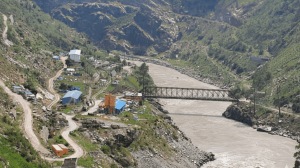Paddy transplantation: Not much change in labour charges compared to last year
Rate in the range of Rs 2,500–Rs 4,000 per acre
 Last year many farmers had made public announcements about fixing rate of labour for paddy transplantation, while labourers had also made announcements not to work at a rate below Rs 6,000 per acre. (express/File)
Last year many farmers had made public announcements about fixing rate of labour for paddy transplantation, while labourers had also made announcements not to work at a rate below Rs 6,000 per acre. (express/File) While the paddy transplantation is going on in full swing in Punjab, the labour charges for transplantation (per acre) haven’t increased as the rate is almost in the same range vis-a-vis last year. It’s in the range of Rs 2,500–Rs 4,000 per acre depending on the districts in which workers have been employed.
Paddy transplantation started from June 10 onwards in Punjab – it was in the area across the barbed wire in the six border districts of the state (Ferozepur, Fazilka, Amritsar, Pathankot, Taran Taran, Gurdaspur). More than 15,000 acres under paddy/basmati is across the barbed wire in these districts covering around 170 villages.
From June 16 onwards, paddy transplantation is going on in Ferozepur, Faridkot, Fatehgarh Sahib, Gurdaspur, SBS Nagar and Tarn Taran districts. In Ferozepur the labour rates are the lowest in the range of Rs 2,500–Rs 3,000 per acre and so are the charges in Tarn Taran and Gurdaspur districts.
“In several villages of Zira, Guru-Har-Sahai constituencies of Ferozepur district, the local labour has taken the contract and started work for a rate that is in the range of Rs 2,500–Rs 3,000 per acre. Labourers from UP and Bihar have also come, so farmers are not facing any shortage of labour,” said Zora Singh Nasrali, president of Punjab Khet Mazdoor Union.
“But in Bathinda villages, rates are in the range of Rs 3,500–Rs 4,000 per acre. So, it all depends on the demand of workers in a particular area. Though the paddy transplantation work in Bathinda was supposed to start from June 19, the work has already begun in several villages,” he added.
Last year many farmers had made public announcements about fixing rate of labour for paddy transplantation, while labourers had also made announcements not to work at a rate below Rs 6,000 per acre. Despite this confrontation, farmers hadn’t paid more than Rs 4,000 per acre. But this time no such argument took place. Rates are being fixed amicably after mutual discussion between farmers and farm labourers, said Jagseer Singh, a farmer from Jhumba village of Bathinda.
Tejpal Singh, Chief Agriculture Officer, Ferozepur, said, “Though the area under direct seeding of rice (DSR) has gone down, still in Ferozepur it was around 4,000 acres till now. We hope that it will increase further as many follow DSR technique for basmati.”
Tarsem Singh, a farmer from Pakka Chisti village of Fazilka, said, “I have adopted DSR technique and just completed sowing basmati on 14 acres of land across the barbed wire. I have been following this technique for the past three years. It suits me as it is neither labour intensive nor time-consuming. And moreover it is time-consuming to take labourers across the barbed wire after several security checks.”
“In Fazilka district, only 490 acres of area across the barbed wire is under paddy/basmati,” said Chief Agriculture Officer, Fazilka, Jangeer Singh Gill. Barbed wire has been put up 500 metres or 1 km inside the Indian territory and every day farmers do farming across the barbed wire field within the Indian territory after proper security checks done by the Border Security Force.
Paddy transplantation in Rupnagar, SAS Nagar, Fazilka, Kapurthala, Bathinda, Ludhiana and Amritsar districts will start from June 19. In the remaining nine districts, that is, Patiala, Jalandhar, Moga, Muktsar, Hoshiarpur, Sangrur, Malerkotla, Barnala and Mansa, transplantation will start from June 21.
“Farm labourers from UP and Bihar have started arriving in villages. Next week they will arrive in large numbers. We are yet to finalise the labour charges for paddy transplantation, but last year it was in the range of Rs 3,000–Rs 3,500 per acre. Hopefully it will be around this only,” said farmer Jagseer Singh.
Amarinder Singh, a farmer from Lakhowal village of Ludhiana district, said, “This year the area under DSR is very less because of the abrupt weather conditions. If it doesn’t rain the whole coming week, I will think of adopting DSR technique in about 5 acres of land for basmati rice. Otherwise I will be doing transplantation of basmati in the first week of July.”
He added, “Farm labourers’ rates should be somewhere in the range of Rs 3,000–Rs 4,000 per acre. Farm labourers are yet to reach Ludhiana villages.”
Angrej Singh, a farmer from Gidderbaha constituency of Muktsar district, said, “Unlike the previous year, this time village panchayats haven’t announced any rates for paddy transplantation. This year it is happening after mutual discussion with farm labourers.”







